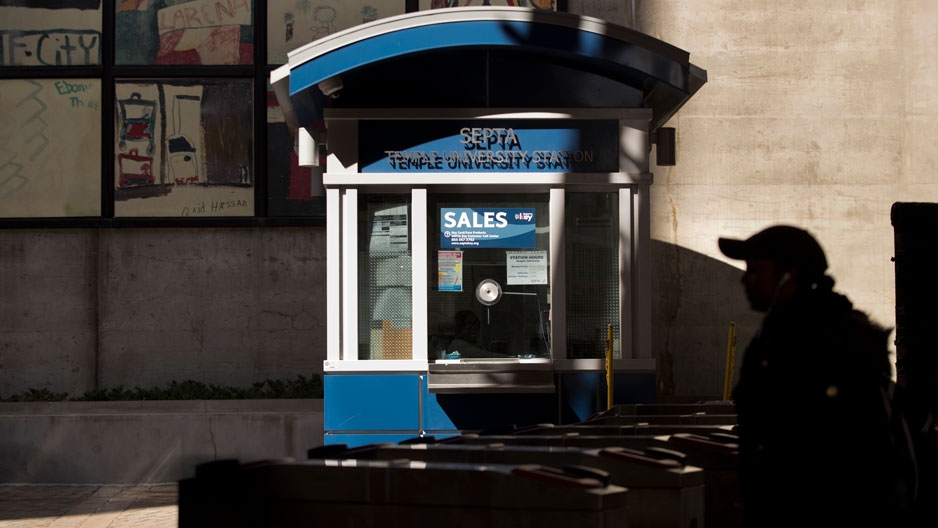
Photo by Betsy Manning 2018
I warmed up early Saturday morning to make a trip to the city for Temple’s Inclusive Leadership Conference. Eight of us from the CDA cohort met at 8:30 a.m. to receive our pink one-way tickets & catch the train, complaining halfheartedly about the wind the whole way there. We exchanged laughter about our Friday evenings and daydreamed about coffee. The train ride in was comfortably sleepy.
The organizers energetically welcomed us with more enthusiasm than we could imagine on a Saturday morning, full of high fives in response to “Bryn Mawr” and Philly language 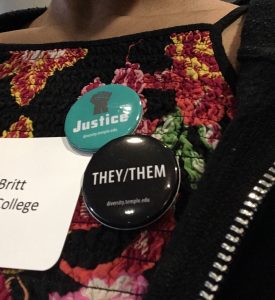 that felt like home (“Ard bet!”) The conference programming was found on an app named Guidebook that we were all encouraged to download; on it were listed all of the workshops (with descriptions!), locations and times so that we were able to choose & customize our own engaging experience. It was pretty cool and really helpful when I needed to refresh myself on what was available to me. They gave us these neat bags with everything we might need for the conference, and we headed inside the main room for light breakfast, jars of pins reading from pronouns, to identities, to promises for allyship, and eventually welcoming remarks made by Temple alum and Pennsylvania State Representative Malcolm Kenyatta.
that felt like home (“Ard bet!”) The conference programming was found on an app named Guidebook that we were all encouraged to download; on it were listed all of the workshops (with descriptions!), locations and times so that we were able to choose & customize our own engaging experience. It was pretty cool and really helpful when I needed to refresh myself on what was available to me. They gave us these neat bags with everything we might need for the conference, and we headed inside the main room for light breakfast, jars of pins reading from pronouns, to identities, to promises for allyship, and eventually welcoming remarks made by Temple alum and Pennsylvania State Representative Malcolm Kenyatta.
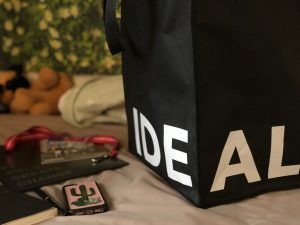
I made note of the things he said that I found most interesting. Malcolm emphasized to us that diversity and inclusion were not enough; instead, he expressed, we should move towards making our work about diversity & invitation. He said something that really resonated with this: that “everyone wants to talk about bringing different people to the table until they have to give up their seat.” In his words, we “gotta unplug the whole game.” Malcolm told us that it’s not our responsibility to change the whole problem; but for that reason we can each make change within our own spheres of influence. Our friendships, intimate relationships, families, our circles are all, to an extent, within our ability to change and act, something easy to forget but sometimes comforting to remember. The spirit of “Random Acts of Inclusion!”
Of the workshops I attended, many of them orbited around the idea of how our language can operate towards change. We learned tips for making our everyday language reflect the values we hold towards openness and inclusion, how to make conversations more accessible, and how to channel that into uncomfortable or difficult topics. I found it heartening to see how some facilitators put those things into practice; one of them underlined that although he was presenting his work to us, if something was unclear it was because he wasn’t clear. He was always open to the addition of things he may have missed. People were able to bring their hard experiences into the space and be thanked/applauded for their vulnerability.
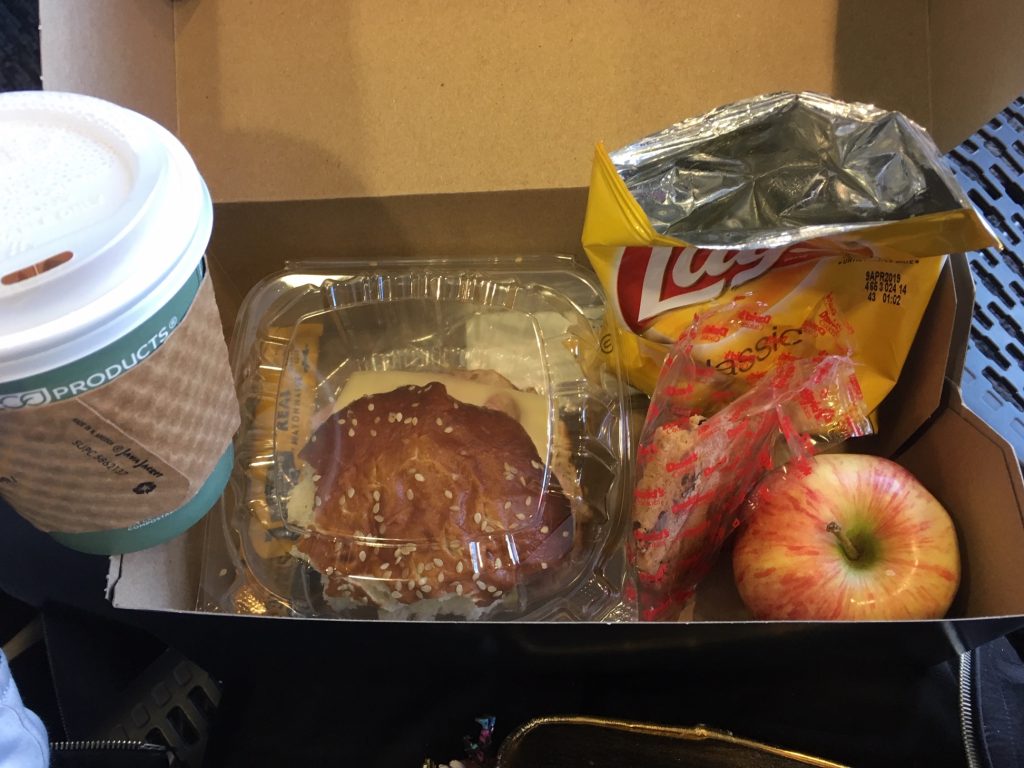
our complete lunch!
My favorite workshop of the day however was named “Navigating Access in the Performing Arts,” that featured a panel of local performing artists or behind-the-scenes organizers of places created for marginalized communities, such as the Project Coordinator advocating for inclusion of artists with disabilities and the Event Coordinator for Philadelphia’s Asian Arts Initiative. The panel was made up of mostly women of color, of which the majority were black. They each brought an individual perspective of how their organizations talk about access, as well as how they’ve navigated access to the arts in their own professional experience.
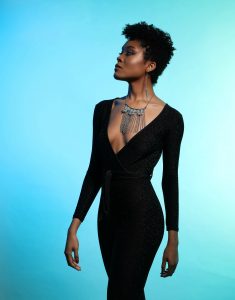
Ang Bey from their website | by Enoch Purnell Photography
We named various kinds of access, from economic access and elitism in the realm of performance art to physical space and the audience’s comfortability in it. Each organization thought through how they could include things like sliding scales for cost, language access for non-English speakers and ASL or closed-captioning resources for folks who are hard of hearing, making performances sensory-friendly and physically accessible in different communal spaces, and more. Here we talked about the small pros of having your language & your work reflect your values; Melody Wong recommended asking the simple question of “Why do we do it that way here? Why don’t we do it this way?”
One moment that I loved was when Ang Bey, a black non-binary performer recalled experiences of making a production they were on more inclusive for various gender identities. The production of Twelfth Night was held in West Philly’s Clark Park & made open and free for people to attend. They remembered that as an empowering communal moment.
The conference ended at 3 p.m. and the eight of us met briefly before heading our separate ways. Alma Sterling ’21, Hannah Chinn ’19 and I made a detour to Chinatown to enjoy our free fare to the city and the winter sunshine, taking boba and sweet buns for the road.

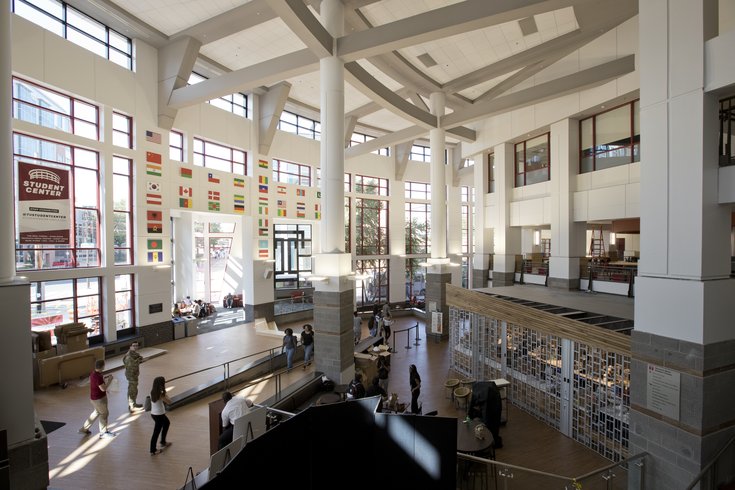
wow…. their student center looks really amazing.. thanks for sharing this Maria!